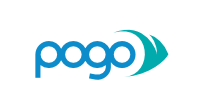MOOSE (Mediterranean Ocean Observing System for the Environment, http://www.moose-network.fr/) is the French component of the Mediterranean ocean observing system. It covers the North-Western Mediterranean basin with an overall objective to observe the Mediterranean sea long-term evolution in the context of climate change and anthropogenic forcing. It relies on a multi-site and multi-platform observing network which delivers appropriate open data and information to the main European data portals, for marine research and public policies like the MSFD. One of the main MOOSE component is the annual MOOSE-GE ("Grande Echelle") oceanographic cruise.
MOOSE-GE is designed to measure essential ocean variables on the water column at the basin scale, to maintain several coastal and deep moorings as well as the ODAS buoys from MeteoFrance, and to deploy/recover autonomous platforms (profiling floats, gliders). The MOOSE-GE cruise usually takes place in late Spring or early Summer on one of the ocean class vessels from the French Oceanographic Fleet. It starts from Toulon (France) and lasts for about one month divided in two legs. About 150 hydrological stations are carried out to collect most of the GOOS Essential Ocean Variables and also more advanced variables like 'omics' and large particles and plankton imagery.
The MOOSE-GE cruises are also hosting an important teaching activity. Bachelor and master students participate to the cruise as a practical work of their academic cursus. This teaching includes daily lessons and scientific seminars in English and is evaluated by a personal research project made on board by groups of students supervised by experienced professors and researchers in oceanography for the national research council and French universities. Read more on http://www.medship.org/doku.php/formation





